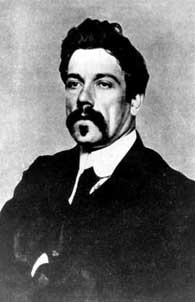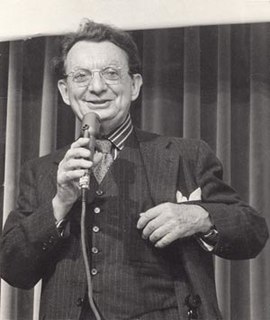A Quote by Samuel Johnson
I have often thought that there has rarely passed a life of which a judicious and faithful narrative would not be useful; for not only every man has, in the mighty mass of the world, great numbers in the same condition with himself, to whom his mistakes and miscarriages, escapes and expedients, would be of immediate and apparent use; but there is such a uniformity in the state of man, considered apart from adventitious and separable decorations and disguises, that there is scarce any possibility of good or ill but is common to human kind.
Quote Topics
Related Quotes
Complaisance, though in itself it be scarce reckoned in the number of moral virtues, is that which gives a lustre to every talent a man can be possessed of. It was Plato's advice to an unpolished writer that he should sacrifice to the graces. In the same manner I would advise every man of learning, who would not appear in the world a mere scholar or philosopher, to make himself master of the social virtue which I have here mentioned.
Down these mean streets a man must go who is not himself mean, who is neither tarnished nor afraid...He is the hero, he is everything. He must be a complete man and a common man and yet an unusual man. He must be, to use a rather weathered phrase, a man of honor, by instinct, by inevitability, without thought of it, and certainly without saying it. He must be the best man in his world and a good enough man for any world
One of man's important mistakes, one which must be remembered, is his illusion in regard to his I. Man such as we know him, the 'man-machine,' the man who cannot 'do,' and with whom and through whom everything 'happens,' cannot have a permanent and single I. His I changes as quickly as his thoughts, feelings and moods, and he makes a profound mistake in considering himself always one and the same person; in reality he is always a different person, not the one he was a moment ago.
I would not have every man nor every part of a man cultivated, any more than I would have every acre of earth cultivated: part will be tillage, but the greater part will be meadow and forest, not only serving an immediate use, but preparing a mould against a distant future, by the annual decay of the vegetation which it supports.
And because the condition of Man, (as hath been declared in the precedent Chapter) is a condition of Warre of every one against everyone; in which case every one is governed by his own Reason; and there is nothing he can make use of, that may not be a help unto him, in preserving his life against his enemyes; It followeth, that in such a condition, every man has a Right to every thing; even to one anothers body.
A good laugh is a mighty good thing, and rather too scarce a good thing; the more's the pity. So, if any one man, in his own proper person, afford stuff for a good joke to anybody, let him not be backward, but let him cheerfully allow himself to spend and be spent in that way. And the man that has anything bountifully laughable about him, be sure there is more in that man than you perhaps think for.
As a man has no right to kill one of his children if it is diseased or insane, so a man who has made the gradual and conscious expression of his personality in literature the aim of his life, has no right to suppress himself any carefully considered work which seemed good enough when it was written. Suppression, if it is deserved, will come rapidly enough from the same causes that suppress the unworthy members of a man's family.
Every man has some reminiscences which he would not tell to everyone, but only to his friends. He has others which he would not reveal even to his friends, but only to himself, and that in secret. But finally there are still others which a man is even afraid to tell himself, and every decent man has a considerable number of such things stored away. That is, one can even say that the more decent he is, the greater the number of such things in his mind.
Reason cannot desire for man any condition other than that in which not only every individual enjoys the most absolute, unbounded freedom to develop himself out of himself, in true individuality, but in which physical nature, as well, need receive no other shaping by human hands than that which is given to her voluntarily by each individual, according to the measure of his wants and his inclinations, restricted only by the limits of his energy and his rights.
No man, however benevolent, liberal, and wise, can use a large fortune so that it will do half as much good in the world as it would if it were divided into moderate sums and in the hands of workmen who had earned it by industry and frugality. The piling up of estates often does great and conspicuous good.... But no man does with accumulated wealth so much good as the same amount would do in many hands.
There are only two kinds of men in this world: Honest men and dishonest men. ...Any man who says the world owes him a living is dishonest. The same God that made you and me made this earth. And He planned it so that it would yield every single thing that the people on it need. But He was careful to plan it so that it would only yield up its wealth in exchange for the labor of man. Any man who tries to share in that wealth without contributing the work of his brain or his hands is dishonest.
The spirit only can teach. Not any profane man, not any sensual, not any liar, not any slave can teach, but only he can give, whohas; he only can create, who is. The man on whom the soul descends, through whom the soul speaks, alone can teach. Courage, piety, love, wisdom, can teach; and every man can open his door to these angels, and they shall bring him the gift of tongues. But the man who aims to speak as books enable, as synods use, as the fashion guides, and as interest commands, babbles. Let him hush.
Condemn no man for not thinking as you think. Let every one enjoy the full and free liberty of thinking for himself. Let every man use his own judgment, since every man must give an account of himself to God. Abhor every approach, in any kind or degree, to the spirit of persecution, if you cannot reason nor persuade a man into the truth, never attempt to force a man into it. If love will not compel him to come, leave him to God, the judge of all.
A man follows the path laid out for him. He does his duty to God and his King. He does what he must do, not what pleases him. God's truth, boy, what kind of world would this be if every man did what pleased him alone? Who would plough the fields and reap the harvest, if every man had the right to say, 'I don't want to do that.' In this world there is a place for every man, but every man must know his place.





































